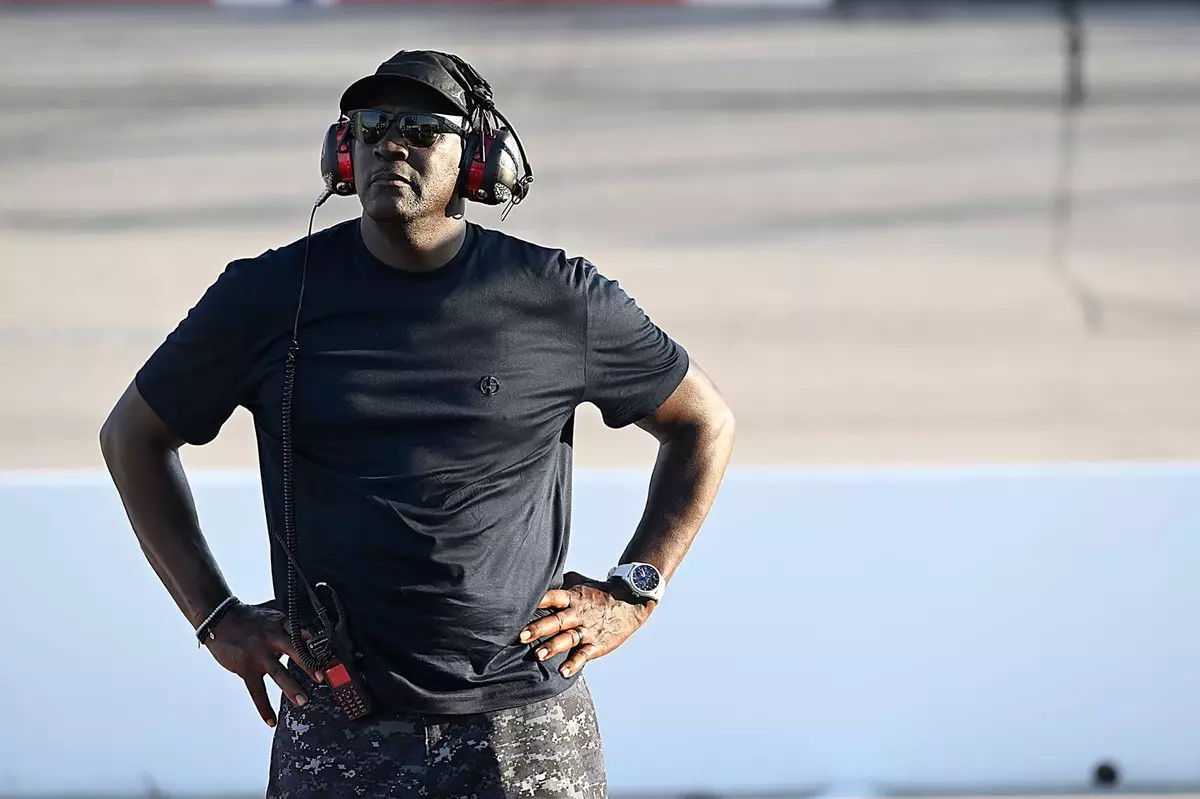NASCAR has found itself in the middle of a significant legal controversy, as two racing teams, 23XI Racing and Front Row Motorsports (FRM), have banded together to file a joint lawsuit against the governing body of stock car racing. The lawsuit centers on allegations of “anti-competitive and monopolistic control” exercised by NASCAR, which has maintained a firm grip on the sport since its inception in 1948. As teams push back against the latest charter agreement, the dispute has morphed into a broader fight for the integrity of the racing community and its competitive landscape.
Both teams have notably refrained from signing NASCAR’s new charter agreement, citing several troubling elements. The insistence on moving forward with the case appeared after a lengthy series of discussions that did not yield productive outcomes. The launch of the antitrust case—targeting the dominant practices of NASCAR—emphasizes the belief among participants that major changes are necessary to promote fairness and competition within the sport.
In a joint statement, 23XI and FRM expressed their commitment to the racing community through their legal pursuits. They articulated a shared belief: “We share a passion for racing, the thrill of competition, and winning,” they explained, underscoring the idea that the current organizational structure of NASCAR is not conducive to fostering an environment where teams, drivers, and fans can prosper. The teams are advocating for reforms that will lead to a healthier competitive business model benefiting all stakeholders.
This sentiment highlights a yearning for an inclusive atmosphere within NASCAR—where challenges can be met with collaborative solutions rather than an iron-fisted control that benefits only a select few. For the lawsuit to resonate with a broader audience, both teams must effectively communicate how NASCAR’s alleged practices suppress competition and hinder the sport’s growth potential, ultimately alienating fans and participants alike.
Central to the legal arguments are specific accusations leveled against the France family, who have historically overseen NASCAR’s operations. The teams challenge several of NASCAR’s practices that they argue create an unlevel playing field for others involved in the sport. Prominent among these charges is the accusation that NASCAR has monopolized premier racetracks—restricting access to races exclusively for its events—and engaged in tactics that limit fair competition, such as acquiring their few remaining rivals in the form of the Automobile Racing Club of America (ARCA).
Moreover, the litigation demands transparency, alleging control over critical resources, like the Next Gen parts and cars. The lawsuit claims that teams must use parts supplied by NASCAR’s designated suppliers, further solidifying the governing body’s authority over team operations and diminishing their autonomy.
23XI Racing, co-owned by NBA icon Michael Jordan and renowned racer Denny Hamlin, has only been in existence since 2020. It brings fresh enthusiasm and insights from outside the traditional racing world, giving it a unique perspective on NASCAR’s operational challenges. On the other hand, Front Row Motorsports has been rooted in the racing domain since 2005 and has accumulated years of experience navigating various challenges.
Both teams are now advocating for changes that may redefine the landscape of NASCAR—not just for themselves but for the entire ecosystem that includes other participants like drivers, sponsors, and, most crucially, the fans. The teams’ joint efforts indicate a serious commitment to instigating transformation within the sport, striving for a true partnership model instead of the top-down mandate they believe is currently in effect.
As 23XI and FRM prepare to file a preliminary injunction that would enable them to race under the contentious 2025 charter agreement while simultaneously pursuing their antitrust case, the implications of this legal confrontation are profound. Should the teams succeed in showcasing a pattern of exclusionary practices and restrictive regulations, it could pave the way for a revamped racing ecosystem where competition thrives, ultimately leading to innovations, excitement, and greater fan engagement.
Jordan, emphasizing the need for equitable practices in the sport, stated, “I love the sport of racing and the passion of our fans, but the way NASCAR is run today is unfair.” The sentiment echoes across the racing community, reflecting a collective desire for reform. If this lawsuit ignites a movement that advocates for more transparent and competitive practices, it could be the beginning of a transformative era within NASCAR—one that embraces the spirit of competition and celebrates the very essence of what motorsport should embody.
The legal efforts by 23XI Racing and Front Row Motorsports could lead to meaningful change, and the outcomes of this lawsuit will not only affect the two teams involved but the entire NASCAR landscape going forward.


Leave a Reply